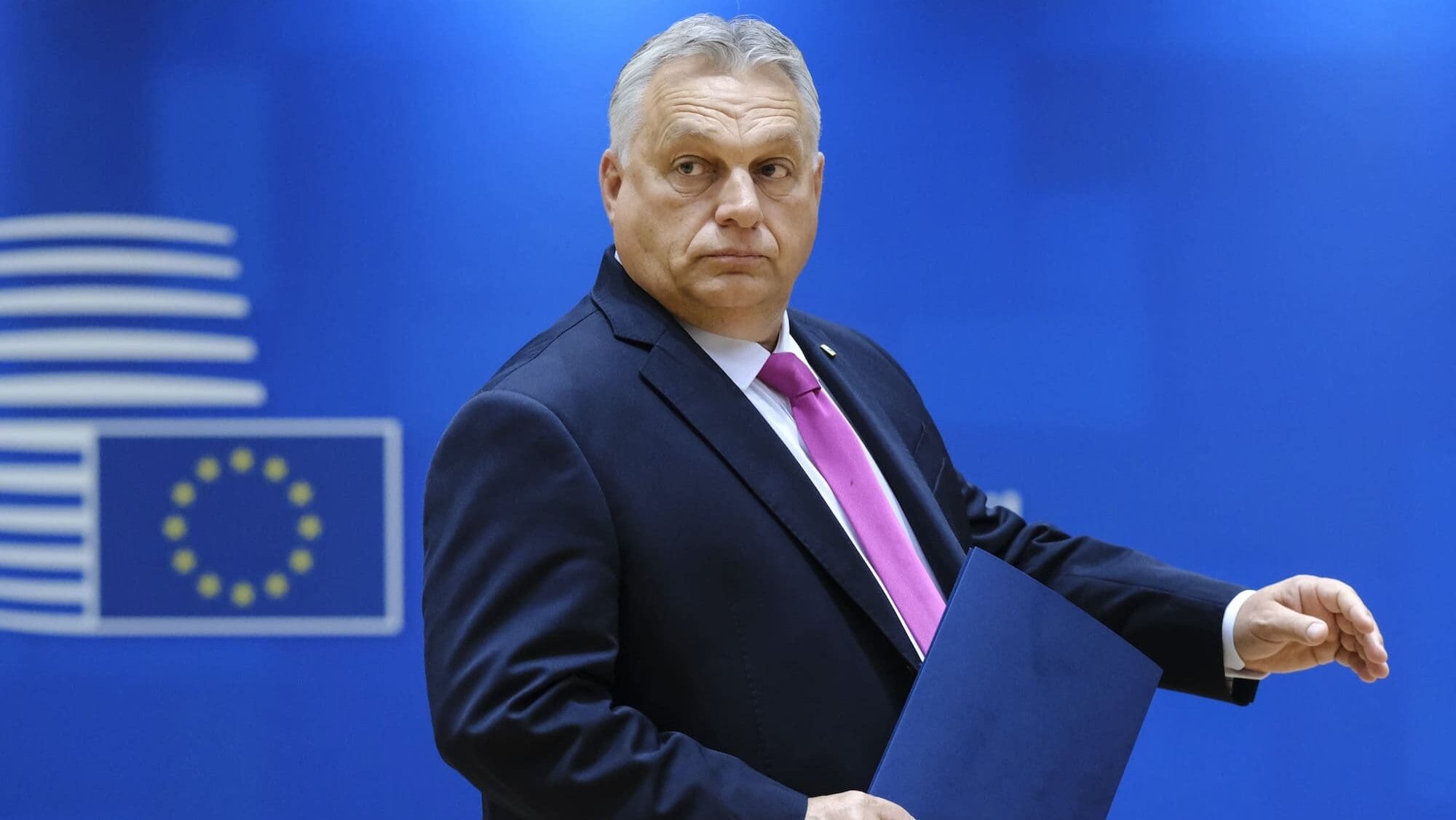
Hungarian PM Viktor Orbán
Photo: © European Union
Hungarian Prime Minister Viktor Orbán, whose country took over the EU Council’s rotating presidency last week, was informed by the European Parliament (EP) that they won’t be able to accommodate him during next week’s plenary session in Strasbourg to present his agenda for the next six months. While the Parliament does indeed operate under a tight schedule this year, the decision still seems politically motivated in light of Orbán’s recent peace mission which took him to Moscow and Beijing.
Traditionally, the heads of the governments holding the rotating EU presidency address the Parliament during the earliest plenary after they take over to outline their priorities for the Council and answer the questions of MEPs.
This one was looking to be a lively debate given Orbán’s unpopular image among the mainstream EU political elite (as well as the presidency’s tongue-in-cheek motto: “Make Europe Great Again”), but we may need to wait for it to take place.
Orbán indicated he would be available on Tuesday or Wednesday (July 16-17th) to deliver his speech in Strasbourg. But, according to Euronews, the Parliament’s Conference of Presidents (heads of the political groups) told the prime minister that they could not fit him into the schedule that week, and would have to wait until the next plenary, which is scheduled for September.
Parliament sources told Euronews that the problem is with the unusually late timing of the EU elections this year, which left only one plenary session for the EP to constitute itself before the summer recess by electing its leadership—its president and fourteen vice presidents, together known as the Parliament’s Bureau.
“Five years ago, in 2019, we were able to accommodate the incoming Finnish presidency during the last summer plenary because the elections were held in May, enabling us to hold two plenaries before the summer,” one official said. “We warned that a June election would have consequences for our schedule.”
Incidentally, the timing of the election was decided by the European Commission, and back then, MEPs accused Commission President Ursula von der Leyen of putting off the date only to give herself more time to campaign for re-election.
Now, two of the plenary’s four days (Tuesday and Wednesday) are reserved for the election of the Bureau, while Thursday is kept open for the Parliament’s long-awaited vote that is supposed to confirm von der Leyen’s second term as President of the European Commission. Whether she has enough support remains to be seen, but the strategy of opening up her coalition to the Greens should easily put her over the threshold.
While Friday would theoretically be available for the Council presidency speech and debate, it was not possible for Orbán, the official explained. There still is, however, a tiny sliver of chance that the Conference of Presidents make a “last-minute accommodation” for Orbán when they finalize the plenary session on Thursday (July 11th), he added, but it is far more likely to delay the speech until next time.
While these arguments do indeed make sense, one cannot feel but think of them as an easy excuse, given how much criticism the conservative prime minister gets from mainstream EU leaders, many of whom conspired for months in a last-ditch attempt to prevent Hungary from even assuming the Council presidency so as not to give Orbán a platform to amplify his voice.
Orbán’s latest decision to go on a peace mission, meeting world leaders on both sides of the war in Ukraine, prompted widespread outrage and was seen as a justification to deny Orbán a stage in Brussels.
“This is appeasement. It’s not about peace,” the European Commission said after Orbán met with presidents Vladimir Putin and Xi Jinping in the past days. Josep Borrell, the EU’s outgoing foreign policy chief, also condemned these meetings, saying that Orbán did not have the mandate to negotiate with anyone in the EU’s name.
However, Orbán repeatedly explained that he never intended to “negotiate with anyone,” and that any decision has to be made by the entire EU Council. The purpose of his trips was merely to promote the idea of peace by urging leaders to find ways to de-escalate.
“The number of countries that can talk to both warring sides is diminishing,” he said. “Hungary is slowly becoming the only country in Europe that can speak to everyone,” Orbán said, justifying the importance of his diplomatic efforts.
Accordingly, Orbán’s peace mission began with a “constructive” meeting with President Zelensky in Kyiv, only after which he turned toward Moscow and Beijing. The prime minister then traveled to Washington on Tuesday to attend NATO’s annual summit and continue having bilateral meetings, starting with President Erdoğan of Turkey.
The #peace mission continues. I had an important meeting today with President @RTErdogan today in #Washington. Thank you for the opportunity, Mr. President! pic.twitter.com/NXdQqesk3l
— Orbán Viktor (@PM_ViktorOrban) July 10, 2024
